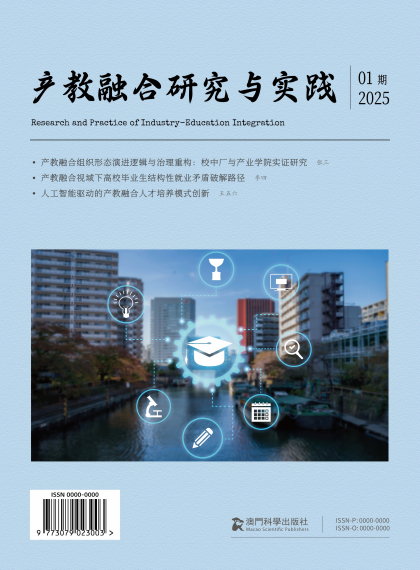摘 要:
在产教融合背景下,针对我国传统人才培养模式存在的问题,我们提出了“三段融合、知行合一”的人才培养模式。首先,阐述了“三段融合”模式的概念,即课程融合、管理融合和评价融合。其次,深入解析了此模式中各阶段的具体实施过程和关键点。研究发现,“三段融合”模式能更好地实现职业教育与实际生产的无缝对接,从而提高学生的实践能力和就业竞争力。与此同时,我国的“知行合一”教育理念被引入到此模式的实施中。它要求理论学习和实践活动的有机融合,使得学生能够在切实解决具体问题的过程中掌握专业技能和方法,形成扎实的知识基础,以更好地适应社会的发展需要。本项人才培养模式的实践研究表明,它对于提升我国职业教育质量,满足社会对高素质人才的需求具有重大现实意义。
关键词:产教融合;三段融合;知行合一;职业教育;人才培养模式
Abstract:
In the context of industry-education integration, in response to the issues present in China's traditional talent training model, we propose the 'three integrations and unity of knowledge and action' talent training model. First, we elaborate on the concept of the 'three integrations' model, which includes course integration, management integration, and evaluation integration. Next, we delve into the specific implementation processes and key points of each stage within this model. The study finds that the 'three integrations' model can better achieve seamless connection between vocational education and actual production, thereby enhancing students' practical abilities and employability. At the same time, China's 'unity of knowledge and action' educational philosophy is incorporated into the implementation of this model. It calls for the organic integration of theoretical learning and practical activities, enabling students to master professional skills and methods while effectively solving specific problems, thereby forming a solid knowledge base to better adapt to the needs of social development. The practical research on this talent training model indicates its significant practical significance for improving the quality of vocational education in China and meeting the societal demand for high-quality talents.
Keywords: Industry-education integration; Three integrations; Unity of knowledge and action; Vocational education; Talent training model
--
